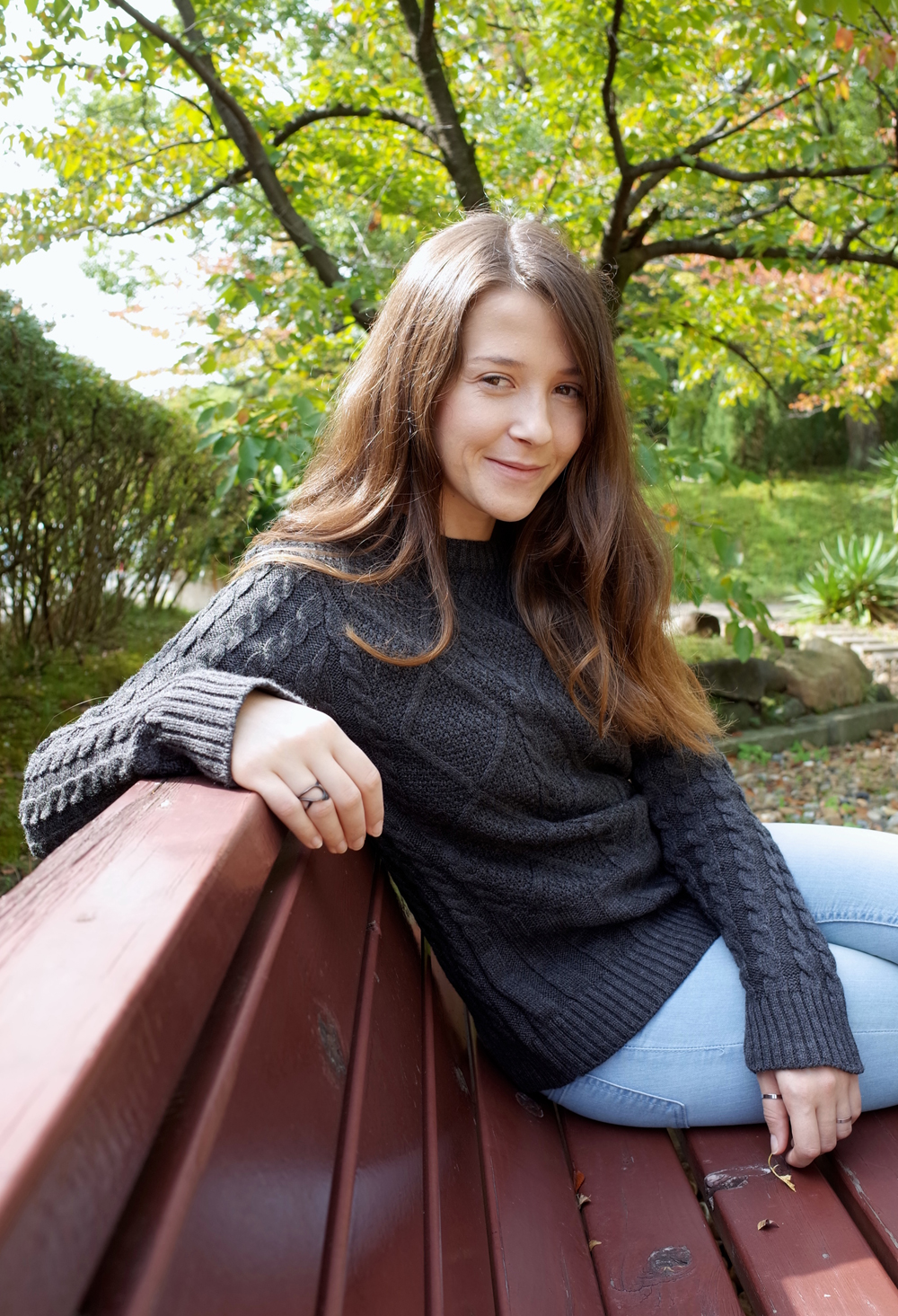
Date:2015.5
Asli Kemiksiz is an international student from Turkey who is studying robots in Japanese science fiction. She enrolled in the master’s program in the Department of Anthropology after studying international relations and later on cultural studies in Turkey, and then studying at Osaka University as a research student. We asked Asli, an international student with a non-anthropology background, what she likes about studying in the Department of Anthropology.
Asli Kemiksiz (master's program)
Asli Kemiksiz is an international student from Turkey who is studying robots in Japanese science fiction. She enrolled in the master’s program in the Department of Anthropology after studying international relations and later on cultural studies in Turkey, and then studying at Osaka University as a research student. We asked Asli, an international student with a non-anthropology background, what she likes about studying in the Department of Anthropology.What are you studying now?

In comparison with the robots of Western science fiction which have come to be eerily similar to humans but traditionally lack some trait that is deemed to be human, Japanese fictional robots are less limited, so to speak. They are everywhere and they can be anyone or anything. I am fascinated by the sheer amount of robot fiction produced in Japan and I think that Japanese science fiction is an important factor in the emergence of the actual robot in Japan. I am currently working on the relation of the fictional and factual robot in Japan and how they constitute each other. People are always allured by how some concepts that originate in science fiction can seep into real life, yet there is not much research on how this happens. I think that the case of the Japanese robot is perfect for delving into this issue.
Why did you choose the Department of Anthropology at Osaka University?
Before studying anthropology, I had originally focused on cultural studies.While I was thinking about how I could learn more by exploring different perspectives while continuing to study science fiction, I became aware of STS (Science and Technology Studies).
The Department of Anthropology at Osaka University was attractive because the students are able to study both anthropology and STS.
It has been hard because I switched my area of study, and there is a lot to learn. But I am glad that I enrolled in the Department of Anthropology.
Do you think it's easy for international students who are currently studying Japanese to handle admission procedures and take classes?
The Graduate School of Human Sciences is a great choice for international students.I had a very difficult time in my previous graduate school because the admission process and classes were mostly in Japanese, and I didn't understand the language very well at that time. In the Graduate School of Human Sciences, you can ask questions in English during classes or research seminars if there is something you don't understand. There are many students and instructors who speak English, especially in the Department of Anthropology; they will help you right away. You can also give your class presentations in English and use English to communicate with the administration office.
I am, of course, diligently studying Japanese, but it helps when they allow international students to communicate in English. Furthermore, I am lucky to have my lab mates and our administrators who help me with my Japanese when I have to do something in Japanese.
I was at loss in the beginning because the way they teach classes and seminars differs slightly from Turkey. In Turkey, we discuss and critique each other in order to deepen our understanding. But my impression here is that lectures are often structured such that the instructor explains the interpretations and concepts of the texts while the students take notes.
